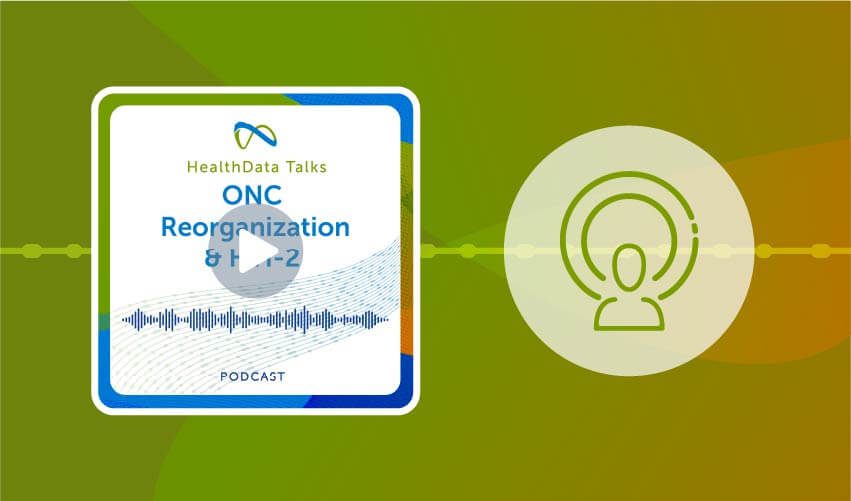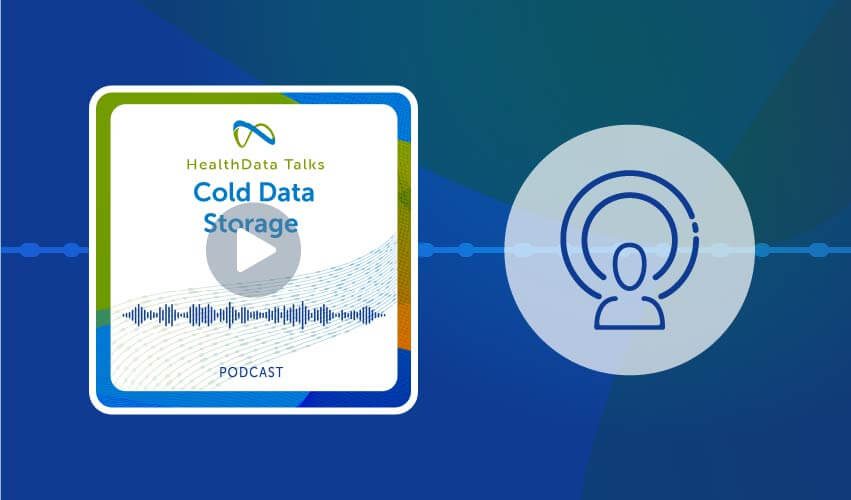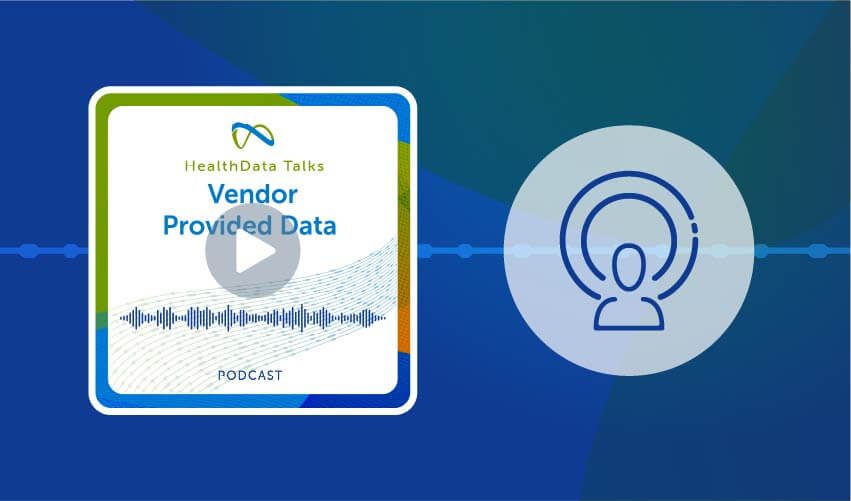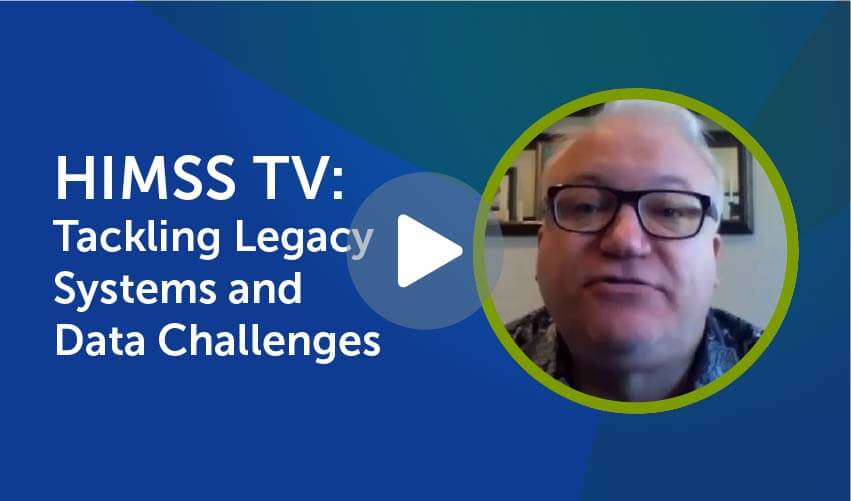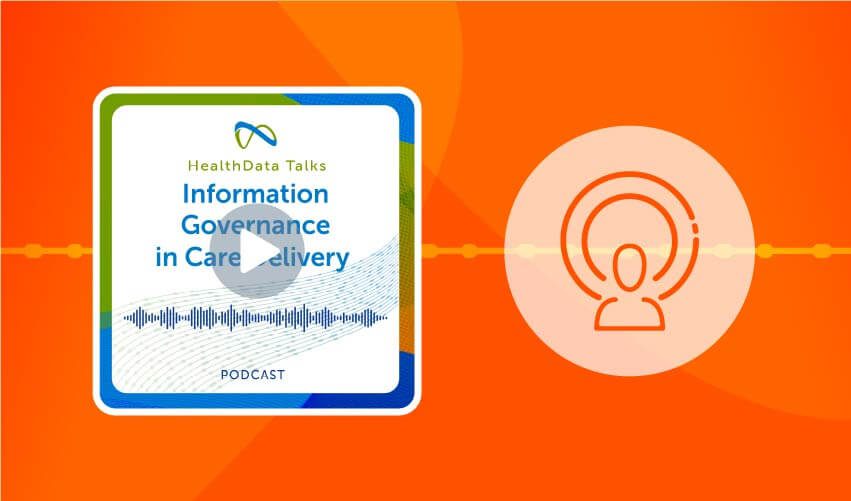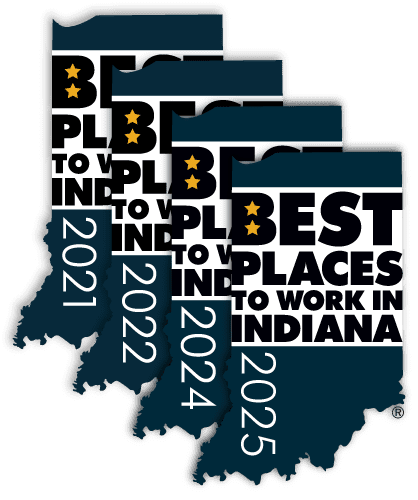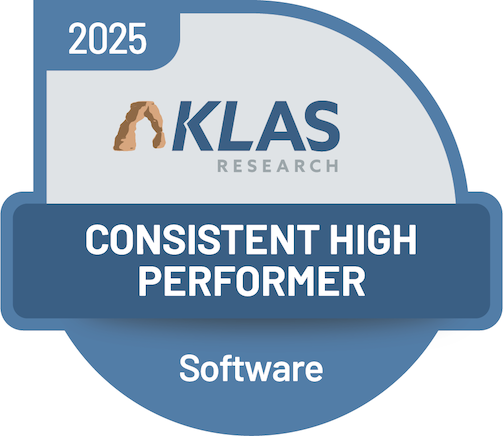HealthData Talks: EHR Migration Insights
In this episode, Erik Johnson and Scott Smiser dive into best practices for EHR and ERP migrations, stressing early planning, team building, and integrated archiving. They explore key differences between EHR and ERP projects, vendor selection strategies, and trends like healthcare consolidation. Scott also shares insights on AI innovation and the growing importance of cybersecurity in healthcare IT.
Subscribe
You can subscribe to the HealthData Talks Podcast on Spotify, Amazon Music, Apple Podcasts and more.
In this episode, Erik Johnson and Scott Smiser share expert insights into the complexities of EHR and ERP system migrations. With production support from Kaylin Chandler, the conversation highlights strategic planning, compliance, technology partnerships, and emerging trends shaping healthcare IT. The discussion offers practical guidance for organizations navigating large-scale migrations while balancing innovation, security, and regulatory demands.
Key Takeaways
-
Strategic Planning & Team Assembly
Success begins with early planning and assembling a cross-functional team—including internal stakeholders and external experts—to avoid delays and ensure alignment across workstreams. -
Integrated Archiving & Data Migration
Archiving and migration should be treated as a unified process. Starting both early helps mitigate risks related to legacy systems, data accessibility, and regulatory compliance. -
Governance & Compliance
Involving legal, compliance, and risk management teams from the outset ensures data retention policies meet federal and state regulations, reducing the risk of mid-project disruptions. -
Managing Legacy Systems
Many organizations focus on new system implementation and neglect legacy system archiving. This oversight can lead to ongoing maintenance costs and compliance risks. A clear roadmap for decommissioning legacy systems is essential. -
Technology Partner Selection
Long-term partnerships are more valuable than transactional relationships. Scott recommends evaluating vendors based on technical breadth, industry reputation, and third-party ratings like KLAS, rather than relying solely on vendor-provided references. -
Vendor Spotlight: Harmony Healthcare IT
Harmony Healthcare IT was recognized for its robust archival product, intuitive data access portal, and experienced team—key factors in Scott’s decision to partner with them. -
EHR vs. ERP Migration Considerations
EHR migrations are subject to strict legal obligations for data retention and access, requiring rigorous oversight. ERP migrations, while more flexible, still demand strategic planning to support analytics and operational continuity. -
Industry Trends: Consolidation & Mergers
Healthcare consolidation is accelerating, requiring rapid application rationalization and archiving during mergers and acquisitions. Having ready-to-deploy partners for system decommissioning is increasingly important. -
Future of Healthcare IT: AI & Security
AI is transforming healthcare through enhanced patient access and clinician support. However, ransomware remains a top concern, making strong security and resilient archiving solutions critical. Scott envisions archiving evolving to support nearline or read-write access for business continuity during cyber incidents.
Speakers
Host:
Erik Johnson, comes to Harmony Healthcare IT with over 20 years of experience leading marketing and commercial teams focusing on Healthcare Information Technology applications. Erik has worked with large organizations (3M, Wolters Kluwer) and start-ups (VigiLanz, PatientIQ), helping teams evolve their go-to-market strategies to achieve sustained growth.
Guest:
Scott Smiser, Scott Smiser, MBA, FACHE, FHIMSS, FACHDM, CHCIO Chief Strategy & Digital Officer, Smiser brings more than 30 years of experience in healthcare technology, having served in leadership roles within major U.S. healthcare systems. Throughout his career, he has advanced patient care delivery by guiding strategic technology investments and advising organizations on transformational initiatives, including EMR implementations and mergers and acquisitions. As a seasoned technology executive, Mr. Smiser has built and led high-performing teams that harness the power of advanced clinical and technical systems to improve the quality and efficiency of patient care.
Most recently, Mr. Smiser served as Chief Innovation and Technology Officer at Emory Healthcare in Atlanta, GA. In this role, he was a key member of the leadership team that executed the largest single-day Epic implementation in history, bringing 11 hospitals and 250 clinics live within 24 hours. Under his direction, Emory became the first health system to natively deploy Epic Hyperspace for Mac on Apple devices—an innovation that culminated in the launch of Emory Hillandale Hospital, the world’s first hospital to operate entirely on Apple technology.
Mr. Smiser is a Fellow of the American College of Healthcare Executives (ACHE) and holds board certification in healthcare management. He is also a Fellow of the Healthcare Information and Management Systems Society (HIMSS), where he has contributed to multiple national task forces and held leadership positions in state chapters for more than 20 years. In addition, he is a Certified Healthcare CIO (CHCIO) with the College of Healthcare Information Management Executives (CHIME) and a Fellow of the American College of Health Data Management (FACHDM). He has also presented extensively to both regional and national audiences on a wide range of healthcare technology topics.
Follow us
LinkedIn: @Harmony Healthcare IT, the Makers of HealthData Archiver®
Twitter: @HarmonyHit
Ready to connect?
Contact us today to learn more about our healthcare data management solutions.

